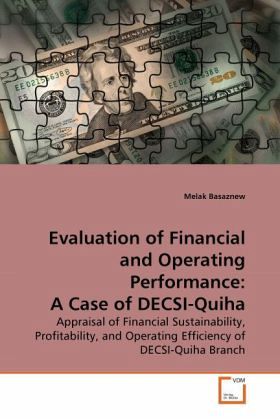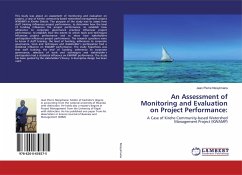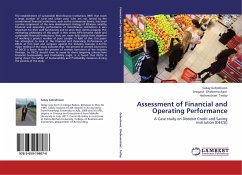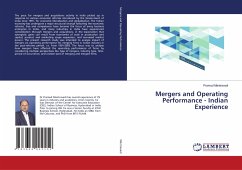
Evaluation of Financial and Operating Performance: A Case of DECSI-Quiha
Appraisal of Financial Sustainability, Profitability, and Operating Efficiency of DECSI-Quiha Branch
Versandkostenfrei!
Versandfertig in 6-10 Tagen
32,99 €
inkl. MwSt.

PAYBACK Punkte
16 °P sammeln!
There is a recent global agreement that Microfinance institutions (MFIs) are good instruments to fill the gap of conventional banks' limitations in reaching the poor and the vulnerable non-poor with banking services. They are considered as one of the most effective interventions for empowering the poor in their economic and social involvements. Micro- finance in Ethiopia has been considered as one of the best entry points for bringing sustainable development. Therefore, healthy financial and operating performance of microfinance institutions is obviously very important for a well functioning f...
There is a recent global agreement that Microfinance institutions (MFIs) are good instruments to fill the gap of conventional banks' limitations in reaching the poor and the vulnerable non-poor with banking services. They are considered as one of the most effective interventions for empowering the poor in their economic and social involvements. Micro- finance in Ethiopia has been considered as one of the best entry points for bringing sustainable development. Therefore, healthy financial and operating performance of microfinance institutions is obviously very important for a well functioning financial system in developing countries like Ethiopia. This book presents an empirical analysis of financial and operating performance of Dedebit Credit and Saving Institution (DECSI) Quiha branch. The intention of this book is to identify financial sustainability, profitability, and operating efficiency of the branch. DECSI can make use of the conclusions and suggestions for its effective functioning and in prudent management of its finances.












